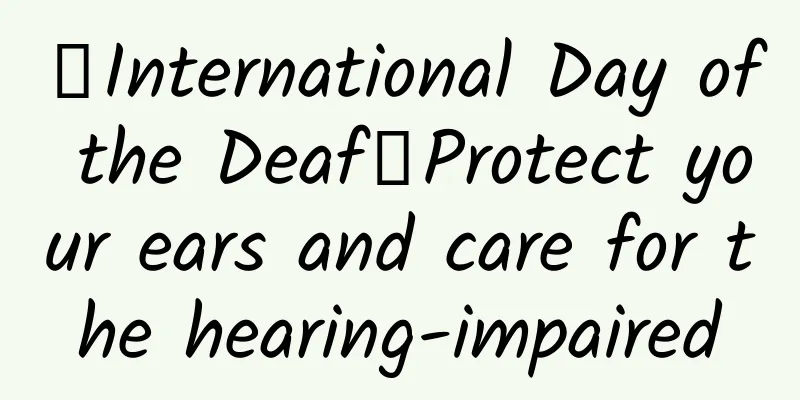What causes postpartum coughing and urine leakage?

|
I believe every woman is very happy psychologically when she is pregnant, and of course she will be even happier after giving birth. However, many problems will occur one after another afterwards, such as coughing and incontinence after childbirth. A female friend of mine had this situation some time ago, but at that time I guessed that it was because she ate a dry diet while in the hospital. Perhaps my judgment was wrong. Later we found a famous doctor and listened to what the doctor said. I hope to share it with you today. So let’s talk about what is going on with coughing and incontinence after childbirth? Urine leakage in new mothers is called "pregnancy tension incontinence". When abdominal pressure increases, such as when coughing, lifting heavy objects, laughing or sneezing, urine will flow out involuntarily. This condition means that there is a small problem with our ability to control our bodies. Anyone who has been a mother knows that in the late stages of pregnancy, it is easy to experience the embarrassment of frequent urination or the inability to hold urine. This is because, during pregnancy, the bladder base and bladder neck will move upward, the urethra length will increase, and the lower urinary tract organs and pelvic support organs will be squeezed by the growing uterus, amniotic fluid and fetus. In addition, the tension of the ligaments is greatly weakened during pregnancy, and when they are unable to bear the increased weight of the abdomen, pregnancy tension incontinence occurs. Excessive pressure can also easily cause serious damage to the pelvic ligaments, leading to irreparable damage and rupture, causing persistent urinary incontinence after delivery. In addition, if the delivery process is not smooth, urinary system sequelae may occur. If the cervix dilates too slowly, the first stage of labor is delayed, the fetal head descends slowly, the second stage of labor is prolonged, or even forceps are needed to assist delivery, it may lead to difficulty urinating or postpartum urinary incontinence. The following mothers are prone to urinary incontinence after childbirth: women who are often constipated and take a long time to defecate each time; women who sneeze and cough frequently; older mothers after childbirth; mothers whose babies' birth weight is over 3500 grams; mothers who have given birth to multiple children. It often occurs during intense aerobic exercise or when abdominal pressure increases, such as when sneezing, coughing, or laughing. Causes of urinary incontinence: To analyze the causes of urinary incontinence, we can start with the female physiological structure. The pelvic floor muscles are like a hammock, supporting the lower abdominal muscles. Above the muscle, there is the cervix and bladder, and above that is the uterus. During pregnancy, the bladder has to withstand up to 5 kg of pressure from amniotic fluid, placenta, etc., which is why urinary incontinence is prone to occur in the later stages of pregnancy. Another cause of urinary incontinence is that the pelvic floor muscles become relaxed due to reduced support capacity during childbirth, causing bladder prolapse. The vagina is subjected to pressure from the pelvic floor, which makes the urethra, which should be tightly closed under normal circumstances, unable to close tightly. When it is impacted by abdominal pressure, urinary incontinence occurs. From a physiological point of view, abdominal pressure incontinence is not a very serious disease, but only a temporary physiological phenomenon. The above describes the specific situation of pregnant women coughing and urinating after delivery. I hope that this weakness can be of great help to many women suffering from this disease, and allow you to take good care of your body after delivery. Don’t worry about it yourself. This is just a minor disease and it is very easy to treat. Only when we understand its cause and condition, we will have a better way to treat them. Keep your mood cheerful and stable, which will also be good for the baby. I hope pregnant women will have a happy life after delivery. |
<<: What does three pluses mean for leukocytosis?
>>: Precautions for episiotomy during childbirth
Recommend
Heart arrhythmia
Arrhythmia is a common and relatively complex car...
Is it normal to have no fetal heartbeat at 2 months of pregnancy?
When I went for a pregnancy checkup in the second...
What are the symptoms of ankylosing spondylitis in women
Women are much more likely to develop ankylosing ...
How much is Heytea hot dry bread? Is Heytea hot dry bread delicious? How does it taste?
We all know that Heytea is a popular milk tea sho...
How to treat chronic cervicitis?
Chronic cervicitis is a common gynecological dise...
What is the disease that causes vulvar itching and whitening?
If a woman's genitals are not well cared for,...
Symptoms of progesterone deficiency in women
Corpus luteum comes from the female uterus and ov...
Is it serious if the uterine fibroids are too large?
Nowadays, many women over 30 years old have more ...
Does skipping breakfast during pregnancy affect the baby?
A day's plan depends on the morning. There ar...
Are tampons really hygienic?
Tampons are sanitary products used by women durin...
Why do I always sweat when I sleep at night?
One day after I went home for the holiday at the ...
Is green tea good for esophageal cancer? How does esophageal cancer come about?
Many people like to eat hot food, which can easil...
What to do if your menstruation does not stop for a month
Menstruation is a normal physiological phenomenon...
Can hawthorn tea be mixed with water to drink? How to eat dried hawthorn for the best nutrition
Hawthorn is a common fruit in our lives. Because ...
When will McDonald's coconut pie be available? When will McDonald's coconut pie be removed from shelves?
McDonald's Coconut Pie is a seasonal delicacy...









